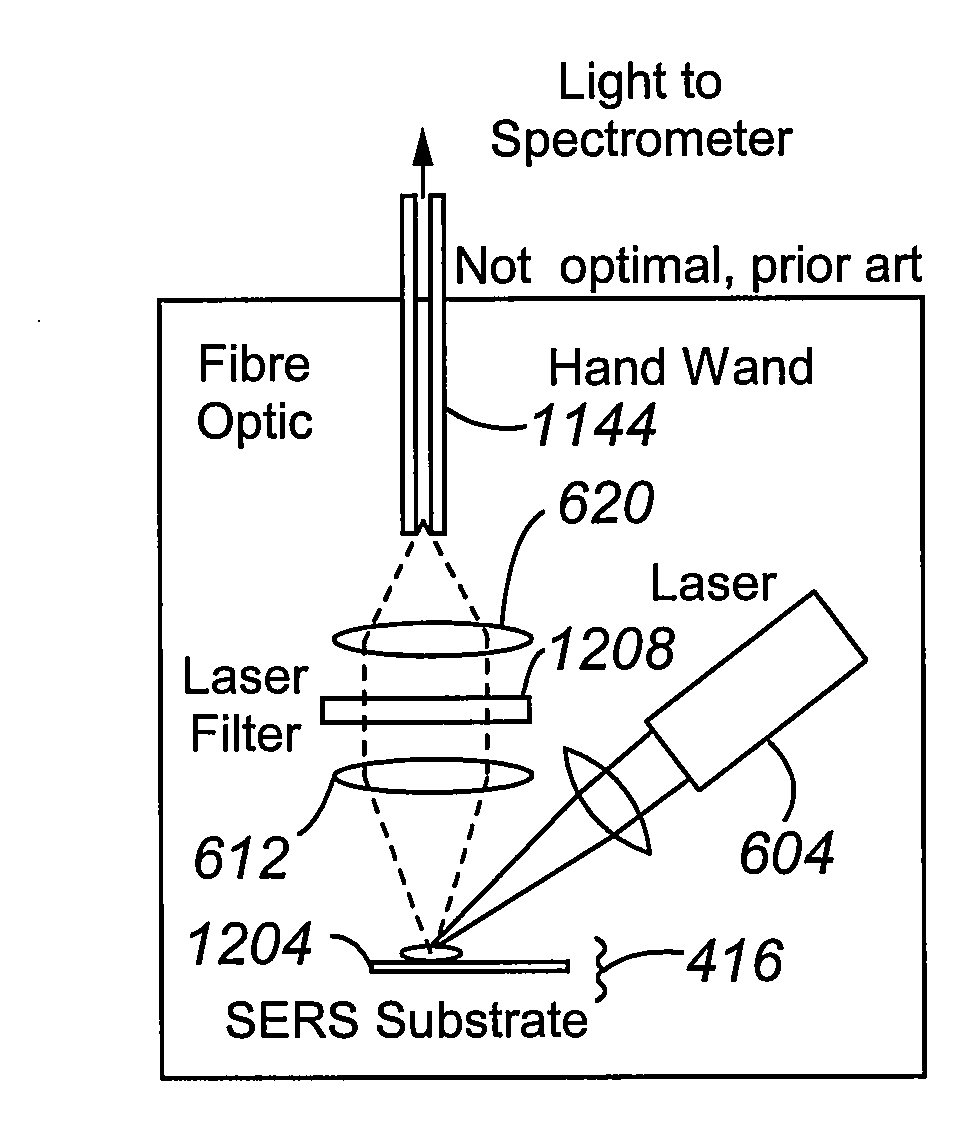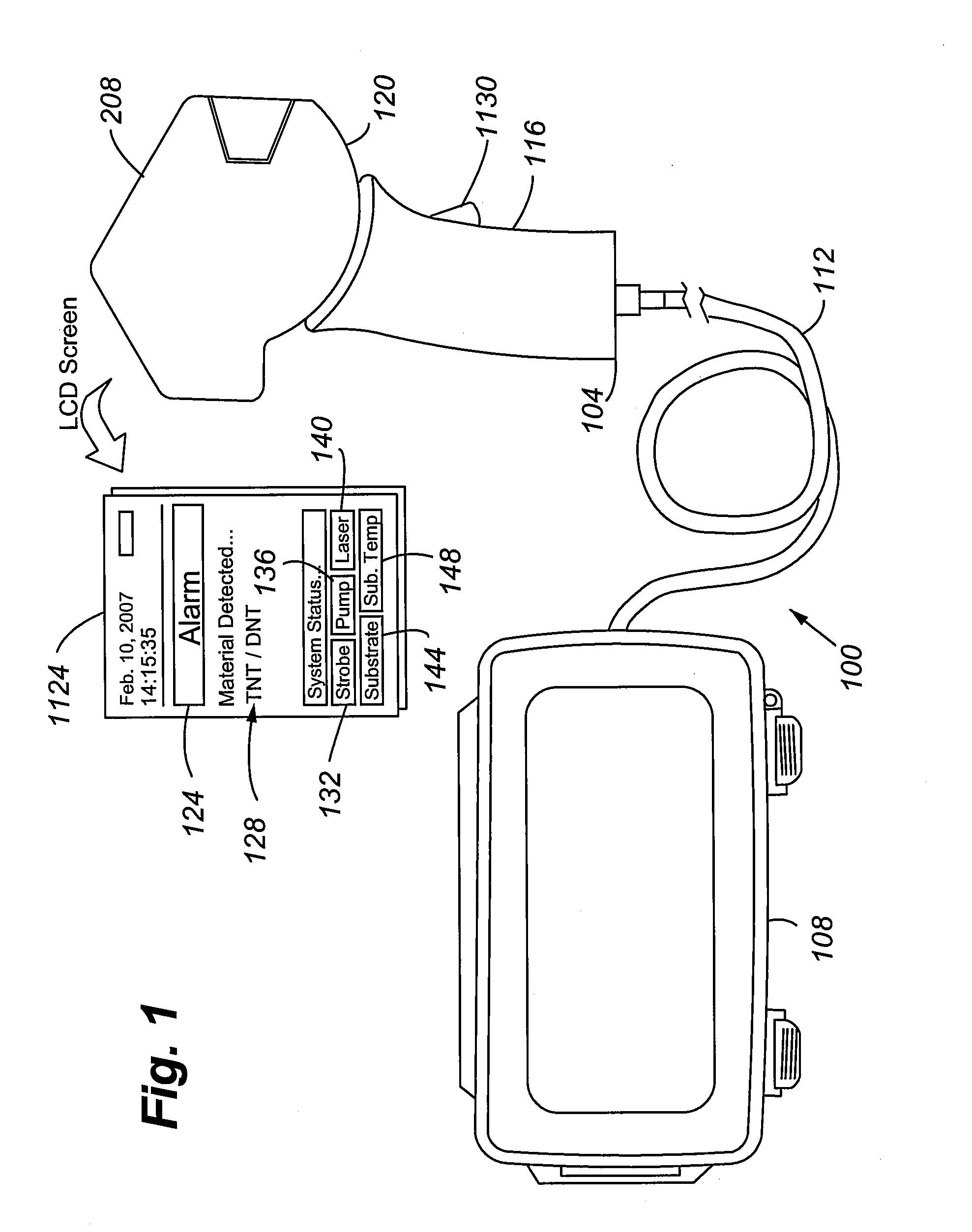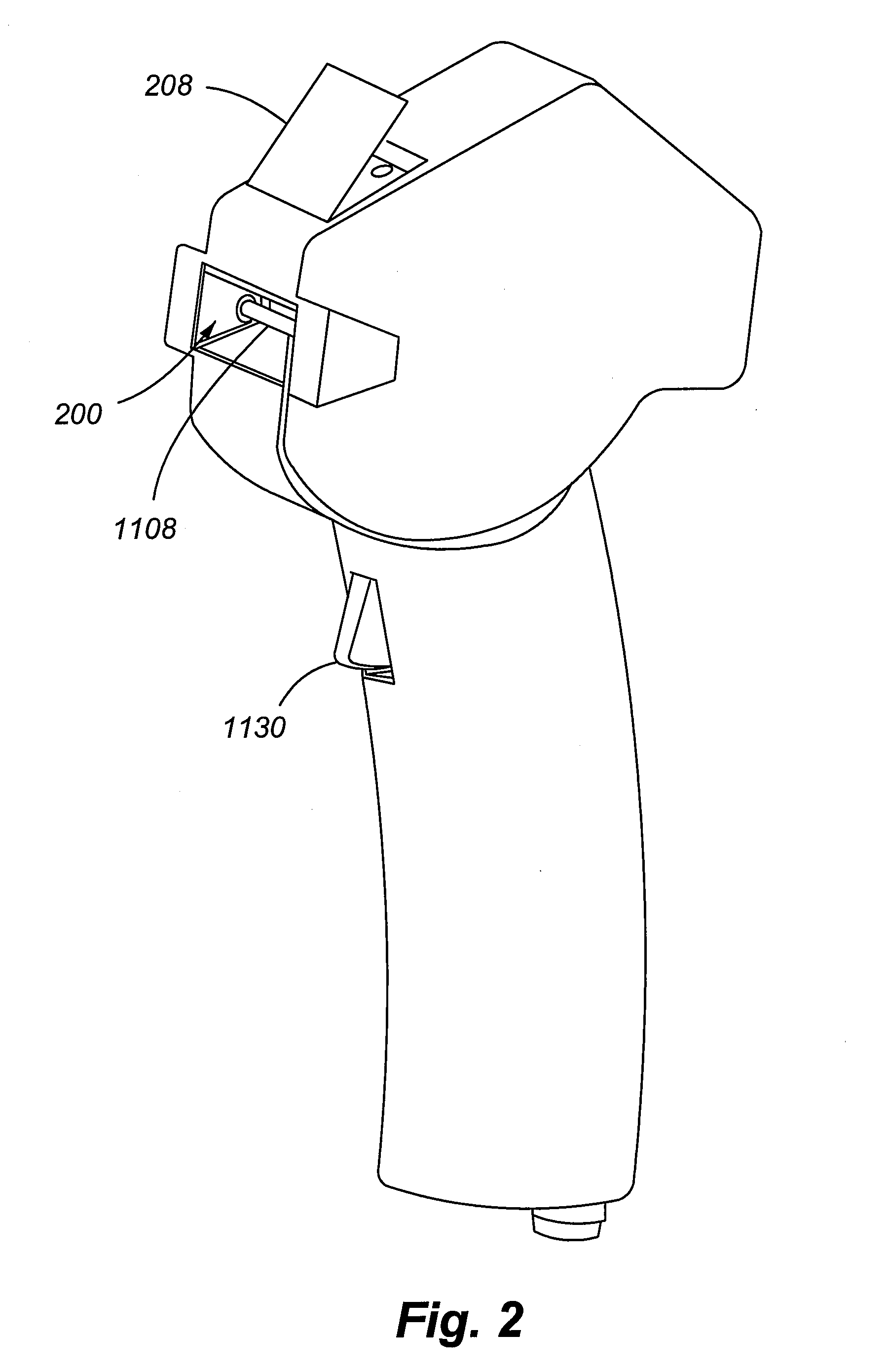Methods for employing stroboscopic signal amplification and surface enhanced raman spectroscopy for enhanced trace chemical detection
a raman spectroscopy and stroboscopic signal technology, applied in the field of trace chemical detection, can solve the problems of increasing the detection limits of traditional trace vapor detector systems by two or more orders of magnitude, and achieve the effects of high sensitivity to trace substances, light weight and agile, and fast sampling
- Summary
- Abstract
- Description
- Claims
- Application Information
AI Technical Summary
Benefits of technology
Problems solved by technology
Method used
Image
Examples
Embodiment Construction
The Material Detection System
[0099]With reference to FIGS. 1-11, a field-portable, material detection system 100 includes a hand wand 104 in electrical and signal communication via cable 112 with a user-carried pack 108. The wand housing 104 includes first and second housing portions 116 (handle) and 120 (head). As discussed below, the system 100 can combine Stroboscopic Signal Amplification (SSA) with Surface Enhanced Raman Spectroscopy (SERS). As will be appreciated, Raman detection methodologies other than SERS can alternatively or additionally be employed in the system 100.
[0100]The system can sample any surface, whether flowing or static, and detect any target material, whether air-, water- or soil-borne, or whether living or inanimate. In one configuration the target material is high boiling point and / or low vapor pressure substances and / or derivatives thereof and / or semi-volatile co-contaminant. Derivatives and co-contaminants can be unique markers to the presence of the sour...
PUM
 Login to View More
Login to View More Abstract
Description
Claims
Application Information
 Login to View More
Login to View More - R&D
- Intellectual Property
- Life Sciences
- Materials
- Tech Scout
- Unparalleled Data Quality
- Higher Quality Content
- 60% Fewer Hallucinations
Browse by: Latest US Patents, China's latest patents, Technical Efficacy Thesaurus, Application Domain, Technology Topic, Popular Technical Reports.
© 2025 PatSnap. All rights reserved.Legal|Privacy policy|Modern Slavery Act Transparency Statement|Sitemap|About US| Contact US: help@patsnap.com



